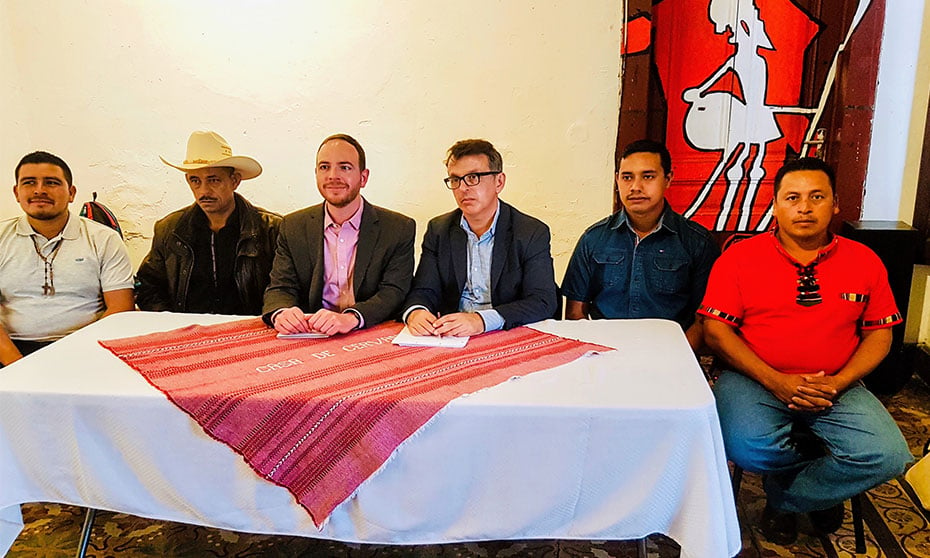Plaintiffs argued company bears direct liability

A recently concluded lawsuit against a mining company shows that Canadian companies can face legal action in Canada for the actions of their subsidiaries in other jurisdictions.
On July 30, Vancouver-based Pan American Silver Corp. announced they had settled out-of-court with and apologized to four Guatemalan men who were shot by security guards during a protest near a silver mine, in 2013. The Escobal Mine in San Rafael Las Flores, Santa Rosa in Guatemala was then run by Tahoe Resources Inc. The men, who were among others protesting what they said was a lack of community consultation by the company, brought a civil suit against Tahoe in the B.C. Supreme Court in 2014. This February, Pan American acquired Tahoe.
“That was a huge legal win for our clients. And it set a very important precedent for foreign plaintiffs seeking to access the courts of Canada for claims against Canadian parent companies,” says Joe Fiorante, partner at Camp Fiorante Matthews Mogerman LLP who acted for the plaintiffs.
There was “considerable concern within Canadian legal circles” that the case would be one of piercing the corporate veil, but the court treated it as a “forum decision,” says Fred Pletcher, chair of the national mining group at Borden Ladner Gervais LLP.
In Garcia v. Tahoe Resources Inc., the B.C. Court of Appeal found that that where there’s a reasonable prospect of an unfair trial in a foreign court, Canadian courts can take jurisdiction.
At the trial level, Tahoe asked the court to reject its own jurisdiction on the grounds of forum non conveniens, arguing that Guatemala was a more appropriate venue for the plaintiffs to try their claim. B.C. Supreme Court Justice Laura Gerow granted the order.
“The question is not whether Canada’s legal system is fairer and more efficient than Guatemala’s legal system. It is whether the foreign legal system is capable of providing justice,” wrote Gerow in her decision. Gerow stated that Canadian courts must be cautious in denying a foreign court the right to deliver justice to its own citizens, in case Canada is given the same treatment in return.
On appeal, Justices Gail Dickson, Nicole Garson and Harvey Groberman reversed the order and ruled Guatemala was not the preferable location. The criminal case involving the head of the Escobal mine’s security Alberto Rotondo had fallen apart because Rotondo had fled the country, and new evidence was presented on corruption in the country’s judicial system.
“So, what the B.C. Court of Appeal decision does is it affirms that the starting point is a presumption that Canadian courts have primary jurisdiction over Canadian companies,” Fiorante says. “So that's the default position. And it’s only if it’s plain and obvious or absolutely clear that the foreign court is better placed to do justice that the case should be dismissed on forum non conveniens grounds.”
Tahoe tried to appeal to the Supreme Court of Canada but was not granted leave.
The plaintiffs were not trying to pierce the corporate veil or attribute the actions of a subsidiary to the parent company, the case was “based on direct parent-company liability,” says Fiorante.
“According to the parent’s corporate social responsibility standards, it's the parent company that's responsible, ultimately, for human rights and for security, and complying with internationally accepted standards on the use of private security contractors,” he says.
Pan American is one of the largest silver miners in the world, operating in Mexico, Peru, Canada, Argentina and Bolivia and is headquartered in Vancouver.










